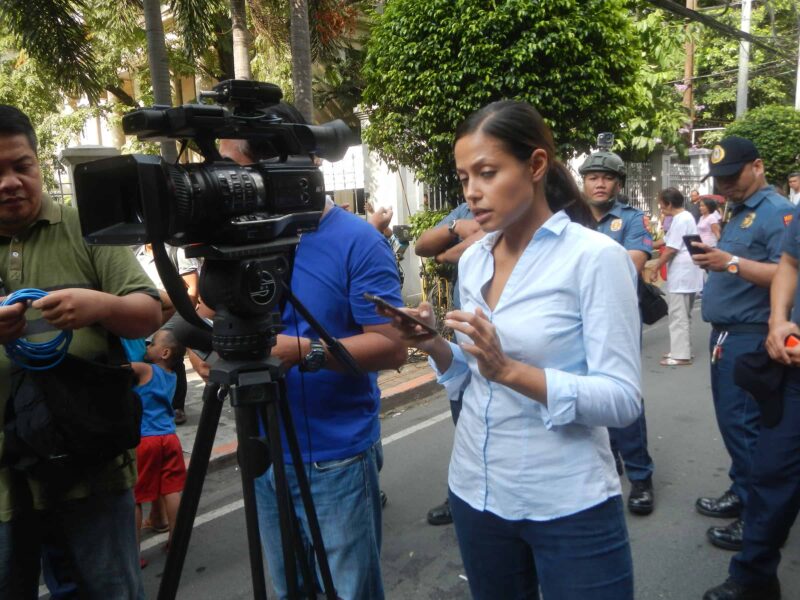Internews’ #InformationSavesLives campaign provides updates from journalists around the world on how they’re coping with coronavirus coverage and maintaining their operations. Learn more and donate to the Rapid Response Fund to help meet the needs of journalists.
Recording from home, surrounded by shirts on hangers, journalist and podcaster Roby Alampay explains, “We have lost access to our studio…we are now recording in less than ideal situations. In lieu of soundbooths, yes – I’m in my closet. Pro-tip: This works.”
It’s a light moment in an otherwise challenging situation. Roby says his outlets, PumaPublic Productions, will see revenue dry up in this first half of the year. But he knows for sure their work is needed. “Our audience and engagement on social media has actually multiplied tenfold.”
Forced to innovate in new formats and new platforms, Roby and his team are focusing on stories that reflect the real lives of people in their community, and the emotional and psycho-social impacts of the pandemic.
Inday Espina-Varona, a freelance journalist, says the lack of contact with sources is her biggest challenge. “I’m a high-risk person, a cancer survivor, and I’ve been told to stay put.” She tries to stay in touch over the phone and social media, but it isn’t the same.
Nonoy Espina, Chairman of the National Union of Journalists of the Philippines, is concerned that journalists are able to access information they need to report effectively.
The three journalists, each partners of Internews in the Philippines, are among those Greg Kahailia, Internews Country Representative in the Philippines, works to stay in contact with daily, to assess their needs and determine how best to pivot Internews programs to help these journalists and outlets survive in a new economy and reporting climate.
“Media are facing very serious risk under this pandemic,” said Greg. “Of course the health risk itself, the risk of being exposed to the virus when doing their job, but also economic risks. The sustainability of local media is extremely challenged by this crisis.”
Greg Kehailia
Inday Espina-Varona
Nonoy Espina
Roby Alampay
The pandemic crisis is also an information crisis, and journalists are the first responders. In an emergency, information saves lives. Please help those on the information front line.
(Banner photo: Journalists in the Philippines before the pandemic. Credit: Judgefloro)
